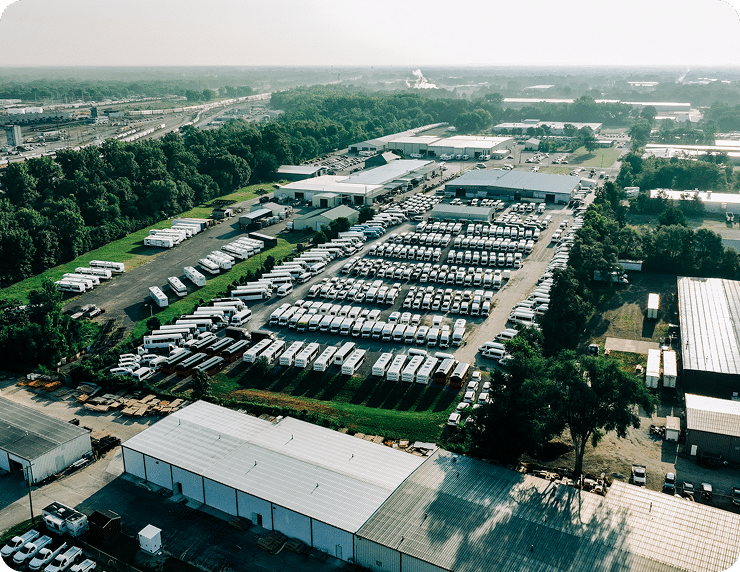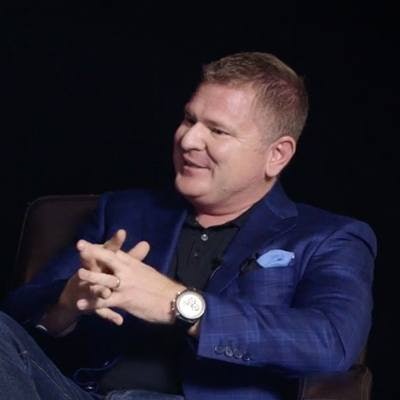Marketing as we know it has been primarily focused on the customer—an outward-facing function that saves the best experiences for customers. Truthfully, that mentality needs to change. Marketing means creating amazing experiences for everyone your brand engages with—including your employees.
Mark my words, your biggest marketing asset is your people. It is not leads, customers, or your brand, which might sound a little crazy coming from a former CMO, but hear me out.
During my time with ExactTarget, Scott Dorsey instilled in us that employees came before our customers. And, honestly, that came to be our biggest differentiator over the years. We used a lot of the same channels to engage our employees as we did with our customers, which helped us to grow a brand that everyone—customers and employees alike—wanted to engage with. We found that employees are the secret weapon for delivering a truly authentic brand experience. Ultimately, how can you expect customers to believe in you if your employees don’t?
Building a People-centered Culture
Cultivating a culture with people at the center has to be intentional. Instead, I see a lot of companies go straight to the end by trying to emulate well-known “culture giants” like Google, which just results in a culture built on perks like a casual dress code and free snacks.
Really, building a culture with people at the center must start with a foundation that’s established in every single process, decision, and interaction from the get-go. Here’s what you need to do it.
1. Enable People to Experience Culture
One big misconception around culture is that everyone experiences it in the same way. There are the known culture advocates, or those who tend to have a “rah-rah” spirit to them, while others may prefer to keep to themselves throughout the day. You can’t assume that these individuals are any less or more engaged, and you can’t assume they’re experiencing culture in the same way. And if you’re a global business, the way individual offices partake in the corporate culture will have the same foundations, but things will most likely be executed in different ways.
Each region, each team, each individual will have their own take on your culture, and no one way is more right than another as long as it holds true to the same core values. I call this “freedom within a framework”: creating the boundaries, but letting employees own how culture is expressed. Culture cannot be forced — or else it won’t work.
2. Winning Is Foundational
People want to win. A job can be fun and engaging, but without organizational success, employees will feel constantly defeated. When asked what is the most essential ingredient in building culture, my answer is always the same — WIN! Of course, winning alone doesn’t guarantee a great culture, but I would argue it’s a prerequisite. Employees need an example of what success looks like in order to recreate it over and over each quarter. And more than that, they need to understand how their role contributes to that success.
Have you noticed that the times when you or your employees are the happiest and most productive are often when you’re working your hardest? Hard work that contributes to a bigger vision produces a sense of accomplishment and a high that makes you want to work harder again and again. Simply put, at our core, we all want to contribute to a winning team.
3. Identify Clear Ownership
Company leaders tell me all the time that they’re serious about culture, but my first response is “Who owns it? Is there a budget assigned to it?” If you want to build a true and successful culture, it simply cannot be an afterthought.
In many companies, the role of culture advocate somehow defaults to HR. But how can culture truly be made a priority amidst other huge initiatives like payroll and benefits? Like any other strategic priority, it needs an owner, budget, focus, and clear success measures. If you don’t have these in place, you’re honestly just giving lip service to culture, not making it a true strategic priority.
4. Establish a Greater Purpose
We are all inherently wired to crave and feel called to something bigger than ourselves. Your employees naturally long to be a part of a larger plan — to leave an impact and a legacy behind. Does your company make them feel like their work matters?
Yes, people want and deserve to be paid fairly. But from the teams I’ve managed, it usually ends up being the third or even fourth factor in what makes them want to work harder. I’ve found that it’s not always about the work you’re doing, but the people you’re working with — that they care about the team and being an ambassador for the brand. From there, working hard is simply the byproduct of being bought into the company and feeling empowered to do your best. I’ve consistently noticed that you can feel this the moment you walk into the building for companies who do this well. There is immediate energy and an unmistakable vibe to a team that’s really bought in.
Reserve the Best Marketing for Employees
People run your business — not products or services. And they’re what make your brand what it is. If they’re not living, breathing, and experiencing the brand in the same way the marketplace does, there will be a big disconnect, leading to poor customer service and an eventual breakdown from the inside out.
Don’t reserve your best marketing for your customers and prospects. Save it for your employees by engaging them at their core and empowering them to truly partner in building the business with you.
…
A version of this post originally appeared on CMOVC.com and the Hyde Park Venture Partners blog.






